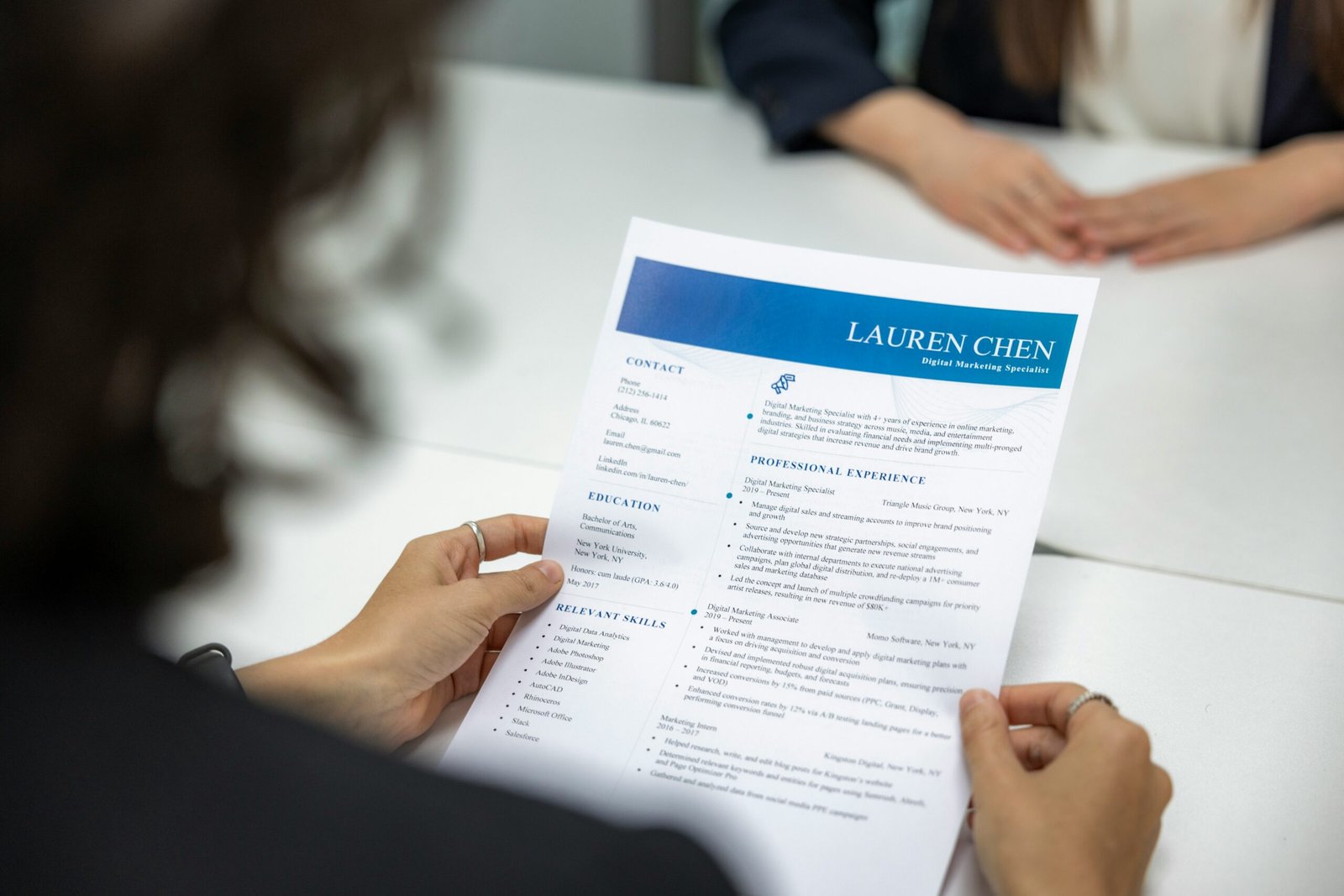Understanding the Role and Responsibilities
The role of a technical support professional is multifaceted, encompassing a variety of tasks designed to ensure the smooth operation of technological systems and the satisfaction of end-users. Primarily, technical support staff are responsible for troubleshooting and resolving technical issues that may arise. This involves diagnosing problems through various diagnostic tools and methods, providing solutions either remotely or in-person, and ensuring the issue is resolved efficiently and effectively How to Prepare for a Technical Support Interview
One of the key responsibilities is to provide exceptional customer support. Technical support professionals must communicate clearly and effectively with users who might not have technical expertise. This means translating complex technical jargon into layman’s terms, providing step-by-step guidance, and ensuring the user feels supported throughout the resolution process. The ability to exhibit patience and empathy is crucial, as these interactions often occur when users are frustrated or stressed.
Understanding different types of support environments is also essential. For instance, working in a helpdesk can involve handling a high volume of support tickets and quick problem resolution, while remote assistance roles may require more in-depth troubleshooting through screen sharing and remote access tools. Each environment demands a different set of skills and approaches, necessitating flexibility and adaptability from technical support professionals.
Technical knowledge remains a cornerstone of the role. Being proficient in various operating systems, software applications, and hardware is fundamental. However, the ability to continuously learn and stay updated with technological advancements is equally important, as the field of technology evolves rapidly. Furthermore, strong problem-solving abilities enable technical support staff to identify the root cause of issues and implement effective solutions.
Communication skills are equally critical. Clear and concise communication ensures that instructions are understood and followed correctly, reducing the likelihood of repeat problems. Additionally, the ability to document issues and resolutions thoroughly contributes to a knowledge base that other team members can utilize.
Overall, the role of a technical support professional requires a blend of technical acumen, strong communication skills, and the ability to provide empathetic customer service. Understanding the responsibilities and equipping oneself with the necessary skills is essential for anyone preparing to excel in a technical support interview.

Researching the Company and Position
Researching the company and the position you are applying for is a critical step in successfully preparing for a technical support interview. Understanding the specific products and services the company offers can provide valuable context for the technical challenges you might face on the job. By diving into the company’s official website, product pages, and recent news articles, you will gain insight into their market presence, technological advancements, and competitive edge How to Prepare for a Technical Support Interview.
Beyond the company’s offerings, pay close attention to the technical tools and platforms they use. This can include customer relationship management (CRM) systems, troubleshooting software, or any proprietary technologies. Knowing these tools beforehand not only shows your proactive nature but also helps you gauge your proficiency in required areas or identify areas for improvement. Platforms such as LinkedIn, Glassdoor, and Indeed may offer employees’ testimonials and job descriptions detailing the technical arsenal you’ll be expected to handle.
Additionally, familiarize yourself with the company’s support protocols. Investigate how they structure their support teams, what the typical workflow looks like, and how they measure success. This crucial information can often be found in job postings, or by networking with current or past employees who may provide first-hand insights. Understanding the company’s approach to technical support will help you align your experiences and skillsets with their operational needs.
Once you have a solid understanding of the company’s products, services, tools, and support processes, you should begin to align your skills and experiences with these elements. Be prepared to articulate how your past experiences resonate with the company’s operations, emphasizing how you have used similar tools or solved related technical issues. Showcasing your ability to contribute effectively to their specific needs will make you a stand-out candidate.
In preparing to discuss your fit within the company, highlight particular achievements or projects that mirror the company’s challenges and objectives. Position yourself as a problem-solver who can seamlessly integrate into their team and enhance their technical support capabilities. This comprehensive research not only prepares you for potential questions but also demonstrates your dedication and genuine interest in becoming an integral part of their technical support team.
Reviewing Common Technical Support Questions and Scenarios
When preparing for a technical support interview, it is crucial to familiarize yourself with the types of questions you might face. These questions generally fall into two broad categories: technical and behavioral. Each type requires a specific approach to demonstrate your competency and suitability for the role.
Technical questions often test your knowledge and problem-solving abilities in areas such as computer hardware, software troubleshooting, and network issues. For instance, you may be asked to identify and solve common hardware problems like malfunctioning hard drives, or to explain the steps you would take to address a software installation error. Network issues might include questions about diagnosing internet connectivity problems or configuring a wireless router. Practicing these types of questions will help you articulate your thought process clearly and logically.
Behavioral questions are designed to assess your customer service skills and how you handle various situations that may arise during technical support tasks. Typical questions might include, “Can you describe a time when you went above and beyond to help a customer?” or “How do you manage difficult or irate customers?” These questions evaluate your interpersonal abilities, empathy, and capacity to remain composed under pressure. By preparing structured responses, you can present your experiences in a way that highlights your problem-solving skills and proficiency in delivering exceptional customer service.
Additionally, interviewers may present situational judgement scenarios that evaluate your decision-making and prioritization skills. For example, you might be asked how you would handle multiple concurrent technical issues or prioritize tasks based on their urgency and impact on the business. Practicing responses to these scenarios will ensure you remain poised and confident during the interview.
Overall, extensive preparation is key. By reviewing common technical support questions and scenarios, you can develop well-rounded responses that showcase your technical expertise and customer service acumen.
Preparing Practical Demonstrations and Problem-Solving Exercises
When preparing for a technical support interview, one of the most critical aspects is your ability to handle practical demonstrations and problem-solving exercises. These segments of the interview process are designed to assess your proficiency in real-time troubleshooting and your capacity to apply technical knowledge effectively.
First and foremost, it is essential to review fundamental technical concepts that are relevant to the position. This includes a solid understanding of the core technologies, protocols, and systems pertinent to the company’s operations. Revisiting these fundamentals will ensure you are well-prepared to tackle a wide range of technical issues that may be presented during the interview.
Practice is paramount to success in these areas. Engaging in mock problem-solving exercises can significantly enhance your readiness. Simulate potential scenarios that you might encounter in the technical support role. Whether it’s resolving network connectivity issues, debugging software errors, or handling system performance problems, rehearsing these situations will boost your confidence and improve your problem-solving skills.
Refreshing your knowledge of relevant software or systems used by the company is also crucial. Familiarize yourself with the specific tools and platforms that the organization relies on. This targeted preparation will not only help you during the practical exercises but also demonstrate your genuine interest in the company’s technical environment.
Equally important is the articulation of your problem-solving processes. During the interview, clearly explain each step you take when addressing a technical issue. Effective communication of your thought process is key to showcasing your analytical abilities and your systematic approach to troubleshooting. Interviewers appreciate candidates who can not only solve problems but also articulate their methodology coherently.
Lastly, maintaining composure is vital. Practical demonstrations and problem-solving exercises can be stressful, but staying calm and collected under pressure is a characteristic of an excellent technical support specialist. Techniques such as deep breathing, positive visualization, and focusing on one step at a time can help in managing stress during these assessments.
